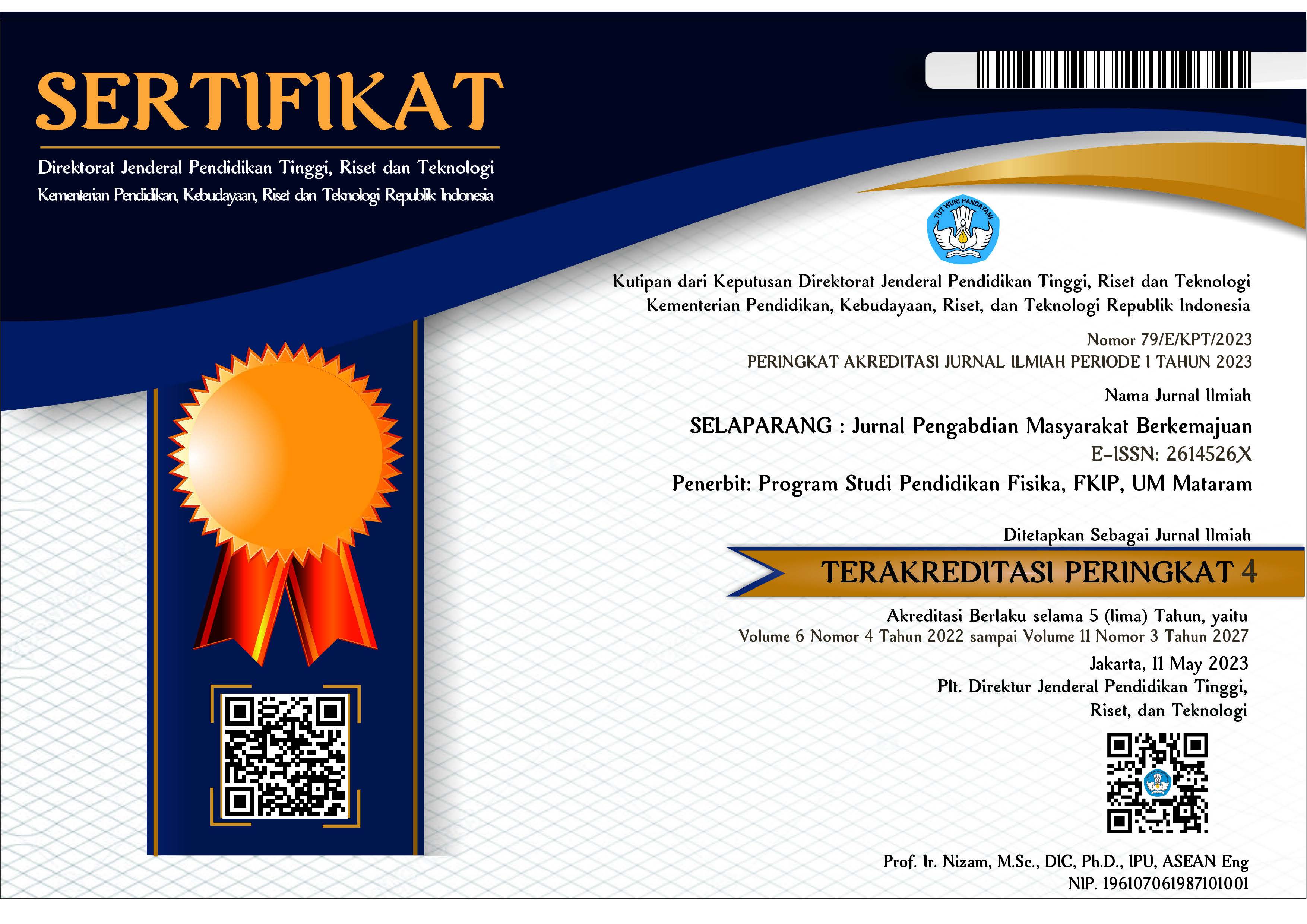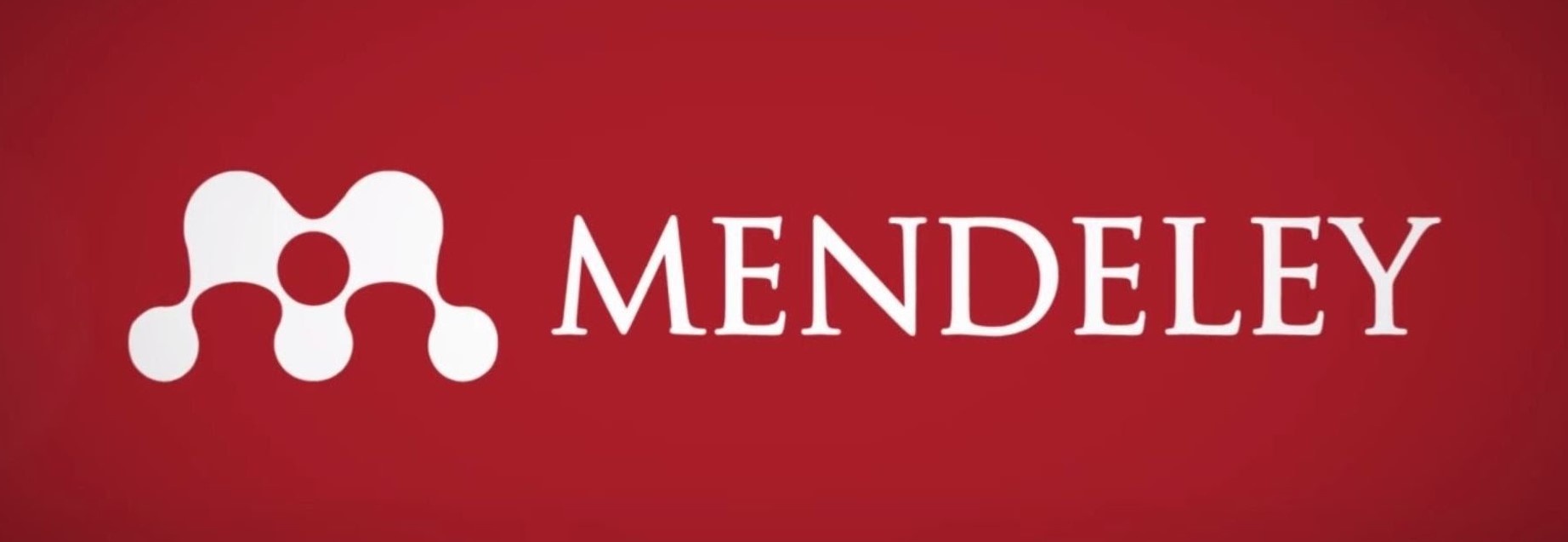PELATIHAN DARING TOEFL BAGI MAHASISWA PROGRAM STUDI PENDIDIKAN BAHASA INGGRIS UNIVERSITAS SINGAPERBANGSA KARAWANG
Abstract
ABSTRAK
Keterampilan dan kompetensi sangat dibutuhkan untuk dapat bersaing di era Revolusi Industri 4.0, salah satunya adalah keterampilan bahasa Inggris sebagai lingua franca di hampir seluruh bidang ilmu pengetahuan. Beberapa perguruan tinggi di Indonesia menetapkan kebijakan tentang kemampuan bahasa Inggris para lulusannya, yaitu dengan memberlakukan ketentuan skor Test of English as a Foreign Language (TOEFL) atau ekuivalen sebagai salah satu persyaratan ujian sidang skripsi. Penelitian sebelumnya berkesimpulan bahwa para mahasiswa Indonesia memiliki tantangan linguistik dan non-linguistik dalam menjawab soal TOEFL. Oleh karena itu, kegiatan pengabdian ini dilaksanakan untuk meningkatkan kemampuan dan kesiapan mahasiswa Program Studi Pendidikan Bahasa Inggris Universitas Singaperbangsa Karawang untuk memenuhi standar kelulusan yang ditentukan. Kegiatan diselenggarakan dalam bentuk pelatihan secara dalam jaringan (daring) dengan menggunakan platform Zoom Meeting Room dan WhatsApp dan melibatkan 45 orang peserta. Materi pelatihan mencakup informasi pengantar tentang TOEFL serta materi bagian Reading Comprehension dan Structure and Written Expression yang mencakup pembahasan jenis-jenis dan berbagai strategi menjawab soal. Dari pelaksaan program ditemukan bahwa secara umum peserta dapat mengaplikasikan pengetahuannya. Terdapat peningkatan rata-rata skor evaluasi peserta pasca pelaksanaan kegiatan sebanyak 13,35%. Namun, evaluasi terhadap pertanyaan yang banyak dijawab salah oleh para peserta menunjukan ada beberapa jenis pertanyaan yang belum dikuasai oleh para peserta.
Kata kunci: daring; bahasa Inggris; pelatihan; TOEFL.
ABSTRACT
Skills and competences are important in order to participate in the 4.0 Industrial Revolution era. One of the skills is English language. Some universities in Indonesia apply English language requirement policy in which students need to submit their score of the Test of English as a Foreign Language (TOEFL) score or its equivalent prior to their thesis defense. Previous studies concluded that Indonesian students have linguistic and non-linguistic challenges in answering TOEFL questions. Thus, this community service program was carried out to improve students’ ability and readiness to meet the standard. The training program was held online using Zoom Meeting Room and WhatsApp platforms. The participants were 45 students of the English Education Department at Universitas Singaperbangsa Karawang. The materials were information about the TOEFL as well as materials for Reading Comprehension and Structure and Written Expression which included types of questions and strategies to answer the questions. It was found that the participants generally could apply their knowledge. The participant’s average evaluation score grew by 13.35% following the training. However, the evaluation of frequently missed questions showed that students had problems answering some types of question.
Keywords: english; online; TOEFL; training.
Keywords
Full Text:
PDFReferences
Akmal, S., Rasyid, M. N. A., Masna, Y., & Soraya, C. N. (2020). Efl Learners’ Difficulties in the Structure and Written Expression Section of Toefl Test in an Indonesian University. Englisia: Journal of Language, Education, and Humanities, 7(2), 164. https://doi.org/10.22373/ej.v7i2.6472
Alek, Farkhan, M., Nurlia, V., & Haucsa, G. M. (2019). University students’ perception on TOEFL as a graduation requirement: a case in UIN Syarif. ELITE Journal, 1(1), 51–63. https://www.elitejournal.org/index.php/ELITE
Antoni, R. (2014). An Analysis on 6th semester students’ TOEFL experience at English department of teachers training and education faculty of Pasir Pengaraian Univeristy. Jurnal Ilmiah Edu Research, 03(01), 9–16.
Asmin, A. I., & Wahyono, E. (2021). EFL Students’ Mistakes in the TOEFL Reading Section. December 2020. https://www.researchgate.net/publication/356192687
Azhari, T., Sahputri, J., & Rasyimah. (2022). Analysis of Student Perceptions on the Implementation of Required TOEFL Test before Graduation. Proceedings of the 2nd International Conference on Social Science, Political Science, and Humanities (ICoSPOLHUM 2021), 648(ICoSPOLHUM 2021), 125–130. https://doi.org/10.2991/assehr.k.220302.019
Badiah, R., Odelia, E. M., Anugrahadi, Y. D., Effendi, R., & Swasti, I. K. (2022). TOEFL ONLINE SPECIAL RAMADHAN ( TOSR ): Program pelatihan untuk mahasiswa tingkat akhir UPN “Veteran” Jawa Timur. SELAPARANG Jurnal Pengabdian Masyarakat Berkemajuan, 6(4), 1932–1943.
Ch’ng, L. K. (2020). Face-to-Face Tutorials, Learning Management System and WhatsApp Group: How Digital Immigrants Interact and Engage in E-learning? Malaysian Online Journal of Educational Technology, 8(1), 18–35. https://doi.org/10.17220/mojet.2020.01.002
Cheung, R., & Vogel, D. (2013). Predicting user acceptance of collaborative technologies: An extension of the technology acceptance model for e-learning. Computers and Education, 63, 160–175. https://doi.org/10.1016/j.compedu.2012.12.003
Dahdal, S. (2020). Using the WhatsApp Social Media Application for Active Learning. Journal of Educational Technology Systems, 49(2), 239–249. https://doi.org/10.1177/0047239520928307
Dhawan, S. (2020). Online Learning: A Panacea in the Time of COVID-19 Crisis. Journal of Educational Technology Systems, 49(1), 5–22. https://doi.org/10.1177/0047239520934018
Gegenfurtner, A., Zitt, A., & Ebner, C. (2020). Evaluating webinar-based training: a mixed methods study of trainee reactions toward digital web conferencing. International Journal of Training and Development, 24(1), 5–21. https://doi.org/10.1111/ijtd.12167
Hidayah, N. P., & Nazriani. (2022). Exploring of students’ difficulties in reading section of TOEFL. Cybernetics: Journal Educational Research and Sosial Studies, 3(3), 209–220.
Kaniadewi, N., & Asyifa, D. I. (2022). The effect on TOEFL preparation course on EFL undergraduate students’ TOEFL. Linguistic, English Education and Art (LEEA) Journal, 6(2019), 12–20.
Kasim, U. (2016). The implementation of TOEFL of score as a requirement for script examination at Syiah Kuala University. Proceedings of the 1st English Education International Conference (EEIC) in Conjunction with the 2nd Reciprocal Graduate Research Symposium (RGRS) of the Consortium of Asia-Pacific Education Universities (CAPEU) between Sultan Idris Education University A, 12, 24–28.
Masfufah, S. (2018). Indonesian college students’ perceptions of TOEFL prepation class. EduLite: Journal of English Education, Literature and Culture, 3(1), 66–78.
Meladina, M., & Dasril, D. (2021). The Problems Faced by Physiotherapy Students and Their Causes in Completing Reading Comprehension Section of ITP TOEFL. Elsya : Journal of English Language Studies, 3(3), 174–182. https://doi.org/10.31849/elsya.v3i3.6764
Nazri, M. A., Wijaya, H., & Zainurrahman. (2020). EFL Students’ Ability in Answering TOEFL Reading Comprehension Section. Journal of Physics: Conference Series, 1539(1). https://doi.org/10.1088/1742-6596/1539/1/012044
Palvia, S., Aeron, P., Gupta, P., Mahapatra, D., Parida, R., Rosner, R., & Sindhi, S. (2018). Online Education: Worldwide Status, Challenges, Trends, and Implications. Journal of Global Information Technology Management, 21(4), 233–241. https://doi.org/10.1080/1097198X.2018.1542262
Rahma, E. A., Syafitri, R., Syahputri, V. N., & Parlindungan, F. (2022). An Evaluation of TOEFL Benchmark Policy as an Exit Requirement for Undergraduate Students. SALTeL Journal (Southeast Asia Language Teaching and Learning), 4(1), 18–25. https://doi.org/10.35307/saltel.v4i1.61
Ratnaningsih, P. W. (2022). Students’ perceptions of structure and written expressions comprehension in TOEFL. הארץNivedana: Jurnal Komunikasi & Bahasa, 3(3), 164–170.
Sari, F. (2018). Undergraduate Students’ Attitudes To the Implementation of Whatsapp Group As Their Learning Media in the Efl Classroom. Researchgate.Net, November 2018, 0–8. https://www.researchgate.net/publication/335320213
Wijayanti, F., & Miqawati, A. H. (2016). Pelatihan Test of English as A Foreign Language ( TOEFL ) Ekuivalen Anggota UKM E-Club Politeknik Negeri Jember. Prosiding, 177–180.
Yosintha, R., Yunianti, S. S., & Ramadhika, B. (2021). Structure and Written Expressions of the Toefl : Linguistic and Non-Linguistic Constraints. NOBEL: Journal of Literature and Language Teaching, 12(1), 70–90. https://doi.org/10.15642/NOBEL.2021.12.1.70-90
DOI: https://doi.org/10.31764/jpmb.v7i1.13641
Refbacks
- There are currently no refbacks.

This work is licensed under a Creative Commons Attribution-ShareAlike 4.0 International License.
______________________________________________________
Jurnal Selaparang
p-ISSN 2614-5251 || e-ISSN 2614-526X
EDITORIAL OFFICE:



















